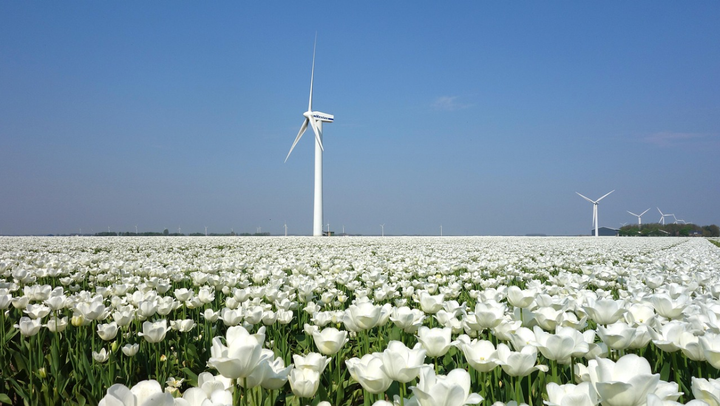What would happen if we banned billionaires?

Saahat Satyam
The philosopher John Rawls posed the idea that we should all imagine that we sit behind a veil of ignorance. Behind this veil of ignorance, we are oblivious to who we are, our class, education, privileges, financial position and so on. We exist as an impartial body tasked to model our own society and hence strive for fairness and equality. Rawls’ “difference principle" suggests that this social contract should ensure that everyone has equal opportunity to prosper and that if there are any social or economic differences, society should work to help those disadvantaged (Veil of Ignorance, 2023). The top one percent of earners possess roughly 40% of the world's total wealth, highlighting the egregious wealth inequality infesting our society today. When we have much more than others, we believe it to be deserved and well-earned, yet, when we fall into the lower percentiles, or just the bottom 50%, that's when we realise a major injustice. Perhaps sitting behind Rawls’ veil of ignorance would make it clearer for us to discern whether a limit on immense wealth is necessary and what that would mean.
Should Billionaires be Banned?
During the Pandemic and cost of living crisis years since 2020, a billionaire gained around $1.7 million for every dollar of new global wealth earned by someone in the bottom 90% (Oxfam, 2023). Income inequality in the UK, as measured by the Gini coefficient, increased from 34.4% to 35.7% between 2021 and 2022 (ONS, 2023), while billionaire wealth surged with rapidly rising food and energy prices. 2022 saw 95 food and energy corporations more than double their profits, making $306 billion in windfall profits and paying 84% of that to wealthy shareholders. Despite this, at least 1.7 billion workers currently experience inflation outpacing their wages and 820 million are starving (Oxfam, 2023), demonstrating that in times of economic and social struggle, money gets funnelled to those already well off, allowing those at the very top to reap almost all the rewards at the cost of the compromised wellbeing for millions.
Alexandria Ocasio-Cortez explains how the super-rich can be viewed as beneficiaries of an immoral, unfair economic system where billionaires purloin rather than earn their wealth. To have that much money, you must be profiting from other people's lack of it and even if individuals are implicated discreetly, capitalism generates the profits upwards by denying adequate wages, lobbying or even by taking advantage of trickle-down taxation policies (NowThisNews, 2020). Furthermore, the possession of surplus wealth by the ultra-rich poses a threat to the political equality that democracy entails. Huge wealth discrepancies are irreconcilable with a democratic society as wealth distorts power to those who possess it and diminishes the political autonomy of those who have less (Levin, 2016). This phenomenon is known as a plutocracy, which undermines democracy, made clear after Donald Trump's infamous tax cuts in 2017, driven largely by big businesses, which helped billionaires pay less than the working class for the first time. They saw the top 0.1% of US earners being granted a 2.5% tax cut which pushed their tax rate below that of the bottom 50% of US taxpayers. Ironically, these cuts did not stimulate much growth, merely adding $1 trillion to the national deficit (Rushe, 2019). When the rich are enabled to design policies to their own ends and lobby for favourable tax rates, it is almost impossible to achieve socio-economic reform meaningful to all classes.
Billionaires and the Economy
While it may make logical sense to believe that the wealth of the richest eventually trickles down to the rest of us, the reality is that this is not true. Trickle-down economics through top-rate tax cuts and deregulation has been criticised by many leading economists. Joseph Stiglitz criticises this theory associated with “Reaganomics” by arguing that the very wealthy have a high marginal propensity to save. This means for each additional currency they earn; they spend a lower proportion of it compared to those who are more deprived. Additionally, Stiglitz explains how the rich engage in “rent-seeking” behaviours whereby they aim to gain wealth without any reciprocal contribution to productivity. In other words, those at the very top strive to increase the size of their slice of the pie without increasing the whole size of it. Consequently, top earners do not consume sufficiently and in turn do not stimulate the economy enough for wealth to “trickle down” to those at the bottom. Instead, Stiglitz believes it is the stagnating income of the middle class which hinders growth, and so, more should be done to redistribute wealth to middle-income earners (Stiglitz, 2015). Conversely, Paul Krugman says that he has not seen evidence that the rich “under consume”, arguing that someone spending 20% of a £10,000 income would add £2000 to the economy while someone spending just 3% of a £100,000 income would add £3000. Krugman also makes known that this comparison is a static one in the sense that you can measure how much two people spend at any given point in time, but it is harder to predict how their patterns of spending are altered if incomes are raised (Yueh, 2019). However, the evidence of millions living below the poverty line suggests that Stiglitz’s “trickle-up” approach is best suited to tackle income and wealth inequality. This suggests improved regulation or even a ban on the number of billionaires whose extra wealth could be redistributed fairly amongst populations living in poverty. Perhaps Piketty’s idea of a progressive, global tax on capital could be adopted to avoid what he called an “endless inegalitarian spiral”. However, this utopian proposition is highly unlikely for it is hard to imagine the nations of this world seeing eye-to-eye upon such a policy.
Accordingly, while it may be true that the billionaire class creates jobs and that wages have the potential to drive the economy, the argument breaks down when workers barely have enough to survive and are exploited for cheap labour whilst losing their political agency. If the world's richest 1% paid 0.5% more in tax, all 262 million children not in school could be educated and enough healthcare could be provided to another 3.3 million (Oxfam, 2019). Therefore, the case for restricting extreme wealth seems strong. Albeit it could be argued that the burden of proof should be on those who protect the existence of these so-called policy failures to show why they should be permitted to syphon off so much money, the responsibility has been placed on those who argue that there should be wealth limitations (Baggini, 2023).
Consequences
So, what would it mean to ban billionaires? It depends on how the ban is implemented and the policies put into place. But the most likely outcome of banning billionaires would be increased wealth distribution. How much of the distribution that ends up reaching the workers right at the bottom and isn’t pocketed by politicians or syphoned off by those positioned just below the CEOs is questionable. However, one would hope that through higher taxes, wealth taxes or asset seizures, the immediate effect would be the movement of wealth from the billionaires to the government or other designated beneficiaries, which could be used to fund further investment in social and welfare programmes as well as in education, healthcare and infrastructure. Implementing this type of wealth tax on just the top 1% of households in the UK could inject £70bn to £130bn into our economy, substantial enough to increase the quality of public output and reduce the wealth discrepancies which plague our society (Tippet, 2021).
On the other hand, critics may argue that this response is unsuccessful. Not only will there be a struggle to enforce a tax policy for which officials and their constituents have no incentive for, but even if public officials could use the additional money to enrich the poor and increase the provision of public goods, so too could billionaires (Enoch, 2018). Thus, objection to billionaire taxation could be grasped in the context of a wider humanitarianism agenda, including more billionaire generosity, suggesting we must put more effort into improving the progressivity and efficiency of redistribution. Though, once improved, this would support higher taxes on billionaires. Nevertheless, this move may not inaugurate any advantage for taxation in essence as it could be planted against taxes too. That is, one could favour reduced taxes on billionaires contingent upon adequate refinements in their resource allocation (Flanigan & Freiman, 2022).
Furthermore, it is argued that billionaires may be more likely to benefit those not as well off if they kept the money that they would pay if they were subject to higher tax rates. And even the non-philanthropic billionaire investments and innovations could have this effect. The first way billionaires benefit people is via investment and while it could be said that the bigger the slice of the pie billionaires have, the smaller the slice everyone else receives (Matthews, 2019), through increasing productivity, providing jobs and producing goods and services which everybody values, billionaire investments have made everyone's slice bigger. Billionaires have powerful incentives to produce goods, services and useful public infrastructure that benefits everyone as that is how they make their money. Consequently, by banning billionaires, there would be an adverse effect on investment and innovation, reduced entrepreneurial activity, and potential job losses leading to stunted economic growth, productivity, diminished utility and overall prosperity.
The case against taxing billionaires out of existence is even stronger when considering the billionaires who invest in philanthropic causes which further benefit common welfare. Billionaire philanthropists are in a better position to provide aid to charitable groups than public officials. The main economic problem alludes to the difficulty of choosing who to and how to allocate scarce resources. Governments experience this issue, finding it difficult to distribute resources to those most deprived due to reasons such as opportunity cost. Even if politicians were increasingly incentivized to improve the welfare system and anti-poverty measures, policy obstacles would hinder their effectiveness (Altmann & Patel, 2020). On the contrary, altruistic billionaires are not constrained by these limitations and are able to spend in ways that bypass legislative constraints and other barriers. It is not to say that billionaire philanthropists have greater selfless motivations; it is that they are more capable and likely to allocate philanthropic resources more effectively than voters or public officials (Flanigan & Freiman, 2022,). Thus, abolishing billionaires would eliminate their ability to contribute on such a scale to bounteous causes. While wealth distribution would address social needs, the absence of billionaire-led philanthropy may reduce the overall funding available for charitable groups and initiatives, reducing overall welfare. Therefore, it may be more appropriate to perceive billionaires as policy successes rather than failures.
Conclusion
Overall, the case for the abolition of billionaires can be made out to be redundant. After all, by taxing billionaires into multi-millionaires, they are still significantly better off than the rest of the population and it does not necessarily mean that their exploitative behaviours will come to an end. To tax billionaires out of existence is to argue against large-scale philanthropy and to be in favour of redistributive policies which lessen innovation and investment (however the extent of which can be debated as multi-millionaires are also capable of such growth stimulators). Then again, we place too much trust on governments to believe that wealth distribution would be at the top of their to-do list should billionaires face higher tax rates for one could argue that if the government wanted to, they would have by now. Therefore, it makes sense to believe that billionaires do better for those worse off than governments would do if billionaires were taxed out of existence. Egalitarians believing that billionaires should be banned for the purposes of equality can be countered by egalitarians who deem billionaires as key philanthropists to address inequality, displaying the paradox of what would occur should a ban of such be implemented.
References
Altmann, G., & Patel, R. (2020, October 29). Common policy problems and what researchers can do about them. LSE Blogs. Retrieved June 25, 2023, from https://blogs.lse.ac.uk/impactofsocialsciences/2020/10/29/common-policy-challenges-and-what-researchers-can-do-about-them/
Baggini, J. (2023, April 5). Should we ban billionaires? A philosopher investigates. Prospect Magazine. Retrieved June 25, 2023, from https://www.prospectmagazine.co.uk/views/columns/60885/philosopher-at-large-should-we-ban-billionaires
A critique to Trickle-down economics. (n.d.). Exploring Economics. Retrieved June 13, 2023, from https://www.exploring-economics.org/en/discover/joseph-stiglitz-trickle-down-economics-is-absolute/
Enoch, D. (2018). Against utopianism. Against utopianism: Noncompliance and multiple agents., 18(16).
Flanigan, J., & Freiman, C. (2022, November 23). Wealth Without Limits: in Defense of Billionaires. Wealth Without Limits: in Defense of Billionaires, 25(5), 755-775. 10.1007/s10677-022-10327-3
Levin, O. M. (2016, December 10). How Inequality Undermines Democracy. E-International Relations. Retrieved June 25, 2023, from https://www.e-ir.info/2016/12/10/how-inequality-undermines-democracy/
Matthews, D. (2019, July 9). Alexandria Ocasio-Cortez’s aide Dan Riffle wants to abolish billionaires. Vox. Retrieved June 23, 2023, from https://www.vox.com/future-perfect/2019/7/9/20681088/alexandria-ocasio-cortez-dan-riffle-billionaire-policy-failure
NowThisNews. (2020). AOC on Billionaires. YouTube. https://www.youtube.com/watch?v=lAnRUepeb_U
ONS. (2023, January 25). Household income inequality, UK - Office for National Statistics. Retrieved June 7, 2023, from https://www.ons.gov.uk/peoplepopulationandcommunity/personalandhouseholdfinances/incomeandwealth/bulletins/householdincomeinequalityfinancial/financialyearending2022
Oxfam. (2019). public good or private wealth?
Oxfam. (2023, January 16). Oxfam International. Retrieved May 29, 2023, from https://www.oxfam.org/en/press-releases/richest-1-bag-nearly-twice-much-wealth-rest-world-put-together-over-past-two-years
Rushe, D. (2019, October 9). Trump's tax cuts. The Guardian. Retrieved June 7, 2023, from https://www.theguardian.com/business/2019/oct/09/trump-tax-cuts-helped-billionaires-pay-less
Stiglitz, J. E. (2016). The Great Divide. Penguin Books.
Tippet, B. (2021, September 20). Ben Tippet. The Guardian. Retrieved June 22, 2023, from https://www.theguardian.com/commentisfree/2021/sep/20/new-wealth-tax-uk-arguments
Veil of Ignorance. (2023). Ethics Unwrapped. Retrieved May 29, 2023, from https://ethicsunwrapped.utexas.edu/glossary/veil-of-ignorance
Yueh, L. (2019). The Great Economists: How Their Ideas Can Help Us Today. Penguin UK.




Comments ()